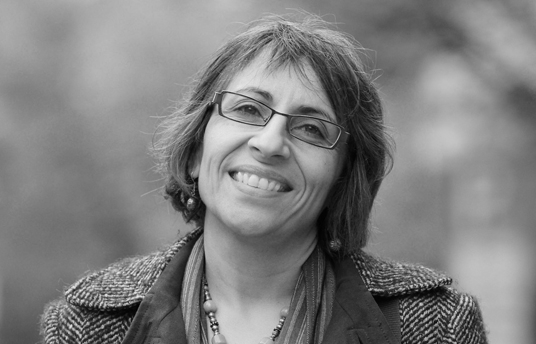More Arab films at Venice this year
Sep 02, 2012

By Anealla Safdar
Viola Shafik is an advisor to the Venice Film Festival’s programmers. She is also involved in the 2012 Doha Tribeca Film Festival, curating this year’s tribute to Algerian cinema. This year, she worked on the strong selection of Arab films at Venice. It’s a banner year with a higher number of documentary and fiction films from the region. Why? How? Is this trend likely to continue? We find out from the filmmaker, film scholar and author…
DFI: What’s different about this year’s selection?
Shafik: With the new direction, the festival has set the goal to become more international and focus on promising regions such as the Arab world. In 2010 and 2011 together, Venice had only three documentaries and three shorts representing the Arab World; not a single fiction film was screened in these two years.
This year’s festival is screening three Arab fiction films in ‘Orizzonti’ (category for new trends in world cinema) plus a Libyan American documentary (Witness: Libya by Abdallah Omeish) and a Tunisian feature documentary in Out of Competition (Ya Man Aach by Hinde Boujemaa). This is more than in the last years together. The Arab world is almost overrepresented in contrast to Latin America, for example, that has a very strong and innovative film culture.
DFI: Why?
Shafik: Of course politics play a role; people want to know what’s going on in the region. But Arab film culture has been additionally boosted in recent years by the Arab Gulf’s funding policy. Recent political and social unrest has certainly had a strong impact in crystallising further independent, alternative and innovative production.
DFI: I’m young, passionate about films and from the Middle East. Which films shouldn’t I miss this year at Venice?
Shafik: The choices in Venice are more on the safe side of film art, yet all included have a daring moment. “Wajda”(by Haifaa Al Mansour) for example, the first Saudi Arabian full length feature film directed by a woman deals with a Saudi girl’s coming of age and is certainly a must see. Also Hinde Boudjemaa’s documentary (Ya Man Aach) on Tunisian homeless woman is a very powerful, dramatic and direct cinema film.
DFI: What about Egyptian films? Last year you said that Egyptian films don’t get international recognition, but are essential for the domestic entertainment industry. What’s missing?
Shafik: Egyptian cinema is a locally oriented film industry that serves the taste and expectations of its local audiences. The Arab world is suffering from a big social gap between the poor, uneducated masses and its well educated tiny elites. Egyptian mainstream has to serve the masses in order to survive; it cannot afford to develop films that could satisfy the middle class’ tastes or Western audiences’. This year Venice is showing an Egyptian fiction by the way, on the Egyptian revolution.
DFI: What’s exciting about Venice?
Shafik: I look forward to seeing how people will react to the different films from the Arab World.
DFI: Do you think there is enough training for filmmakers based in the Middle East?
Shafik: Training can never be enough but…initiatives have been mushrooming…which help to develop documentaries. This again is due to the political events.
DFI: Your film “The Lemon Tree“ was very well received. What are the ingredients to a good documentary?
Shafik: A strong vision, an exciting idea, a lot of research, much time and patience.
DFI: What’s your advice for aspiring filmmakers? Which qualities do they need? What practical steps should they be taking?
Shafik: Training is needed, but what you really need is the ability to listen to the advice and critique of others, absorb it and transform it into positive energy that informs and drives your project forward. That’s a recipe for making good films. To break into the industry is not always a matter of quality, talent or all of the ingredients I cited above, very often it is the way you can present or sell yourself and your project to others. You also need to adapt to the needs of festivals, producers and markets.
DFI: What would you do differently, if anything?
Shafik: Some people say the journey itself is the goal. I like this saying.